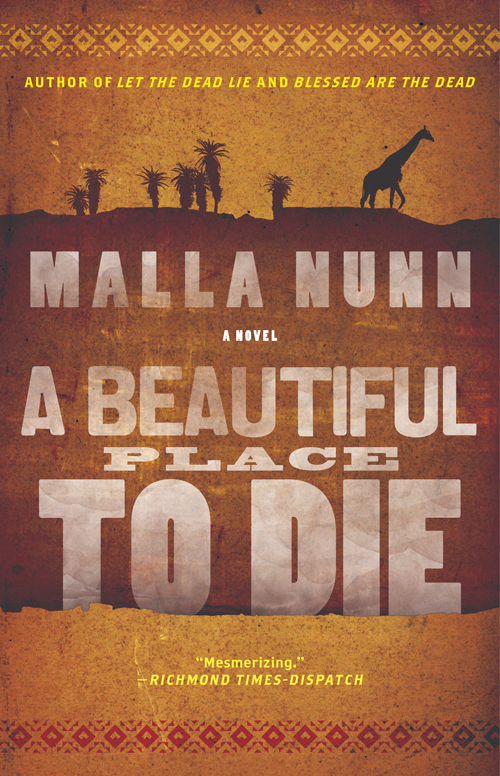 Malla Nunn’s 2008 book A Beautiful Place to Die has been on my reading list for ages. It’s great. Pretty much as damn near perfect a first crime novel as I’ve find.
Malla Nunn’s 2008 book A Beautiful Place to Die has been on my reading list for ages. It’s great. Pretty much as damn near perfect a first crime novel as I’ve find.
The book’s strengths – fantastic writing, an amazing sense of place, a wonderful less is more quality – are established in the first paragraph.
“Detective Sergeant Emmanuel Cooper switched off the engine and looked out through the dirty windscreen. He was in deep country. To get any deeper he’d have to travel back in time to the Zulu wars. Two Ford pick-up trucks, a white Mercedes and a police van parked to his right placed him in the twentieth century. Ahead of him a group of black farm workers stood along a rise with their backs towards him. The hard line of their shoulders obscured what lay ahead.”
A Beautiful Place to Die is set in South Africa in the early fifties at the dawn of the Apartheid system. Detective Sergeant Emmanuel Cooper has been sent to investigate the murder of prominent Afrikaner policeman Captain Willem Pretorius, in the small town of Jacob’s Rest on South Africa’s border with Mozambique.
Not only does Emmanuel have to deal with Pretorius’s angry sons, two very nasty special branch detectives are sniffing around the case, sure that the murder is a political killing, the work of communists.
Emmanuel believes it has more to do with a series of unsolved attacks on black women in Jacob’s Rest and a criminal operation smuggling porn into the country from neighbouring Mozambique.
His only possible ally is the dead policeman’s childhood friend and Zulu police guide. Constable Shabalala. Shabalala obviously knows more than he’s letting on. In fact, most of Jacob’s Rest seem to, the question is whether Emmanuel can get the truth before powerful forces silence him.
Nunn grew up in Swaziland before moving with her parents to Perth in the 1970s. She is thus well qualified to depict the origins of the hideous mutant that became Apartheid.
She drills down into the madness of the period, “when the term ‘immorality’ was applied to interracial sex and not to the raft of laws that took away the freedom of so many people,” with surgical precision. Part of this flows from the fact that no matter how brutal some of her characterisations are, they never descend into cliche.
Emmanuel, half British-half Afrikaner, is still recovering from a broken marriage and the carnage of the Second World War. His ability to take an outsider’s view of what is happening is constantly in conflict with the reality of being a white policeman with the power of life and death over the vast majority of the country’s inhabitants.
If I found one weakness with the book, it is a bit too long. At least fifty pages could have been cut from without it losing any of its narrative power and suspense.
A Beautiful Place to Die is available through Pan Macmillan. The second book featuring Emmanuel Cooper, Let the Dead Lie, was released in 2011.




















Pingback: Dust Devils | Pulp Curry